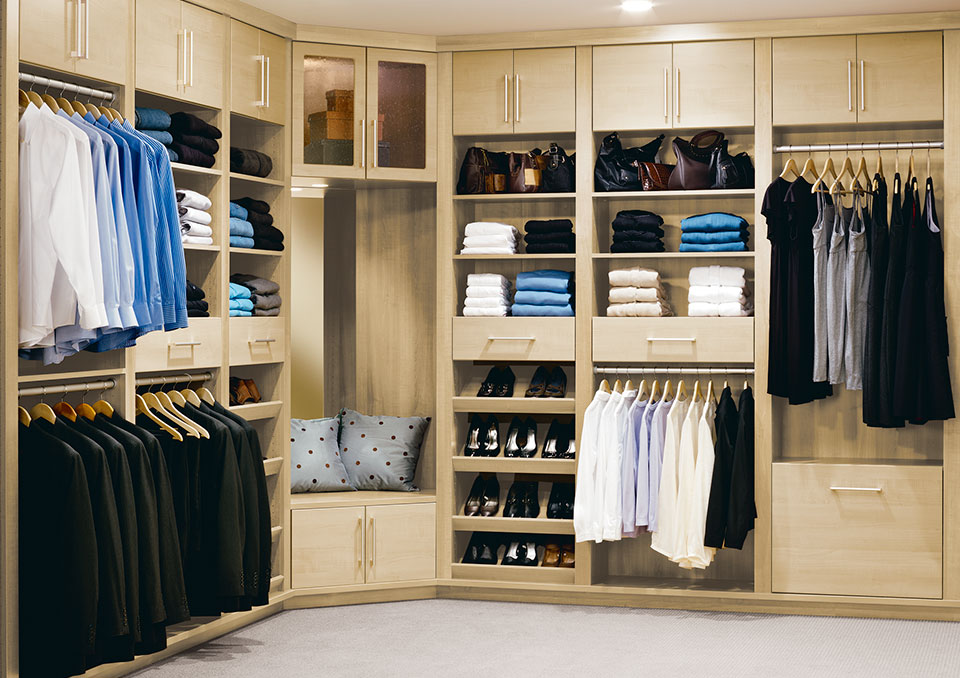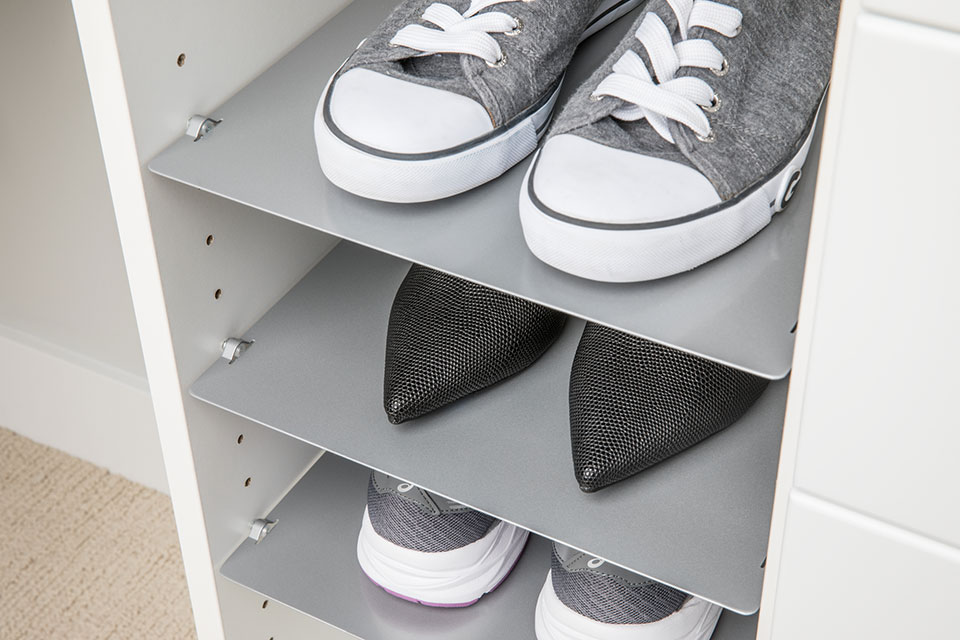Are his and her closets a controversial subject? If the big changes coming to the world of real estate and home design are any indication, maybe so. Since the arrival of COVID-19, people everywhere have been forced into their homes, which has prompted them to seek ways to declutter, simplify, and make their living spaces more functional. At the same time, a quiet movement has also been taking place – not just in the way people use their living spaces, but also in the way they talk about them.
Many people argue that “his and her closets” are a thing of the past, proposing new terms, such as “dual closets” or “shared closets,” to reflect a more modern homebuyer.

Is it a sign of the times, a move toward being more politically correct, or a little bit of both? Read on for three reasons we think this change in language might be happening right now.
1. Real estate agents, designers, and architects are adapting to a changing market.
Demographics of new homebuyers tend to change over time, and as the demographics change, so do the needs of the consumer. Real estate agents and other people housing-related industry professionals must adapt to those changes.
According to an article from New Home Source, today’s homebuyers “increasingly span the social and gender spectrum, from single women looking to purchase urban condominiums to unmarried couples… and ‘multigenerational’ households seeking to share the costs… and living space.”
Put simply, the term “his and her closets” might not attract the growing portion of unmarried homebuyers, same-gender couples, or those looking for multigenerational spaces.

2. Alongside the change in demographics, the modern consumer is increasingly socially conscious.
Socially conscious consumers are simply consumers that use their purchasing power to support their social, moral, or ethical beliefs. As consumers and homebuyers become more aware of fair housing practices and some of the ethical concerns around homebuying, they are looking for companies that are also sensitive to these issues.
One way that real estate agents may indicate more socially conscious business practices is in the terminology they use. Simply describing “his and her closets” as “double” or “shared closets” may be more appealing to the buyer which could lead to more interest in the home.
3. His and her closets are just the beginning— it’s actually part of a larger trend in the industry.
As terminology for “his and her closets” has started to shift, so have some other common terms in real estate vocabulary. “Master bedroom” is one of the most controversial terms and has been talked about by sources ranging from The New York Times to John Legend. In order to get around the racial and gendered connotations of this term, new phrases such as “primary bedroom,” “en suite bath,” and “owner’s suite” have been proposed as replacements.
There are a few other terms being phased out, of course, such as “within walking distance” which may exclude physically disabled buyers. The use of phrases like “bachelor pad” or “for newlyweds” is also declining as real estate agents look for ways to be more inclusive.
Whether you call them “matching,” “double,” or “shared,” the closets formerly known as “his and her closets” can be a great custom closet solution for many homeowners. Whether you’re improving how you shop your closet in the morning, or simply making more space for both you and your partner, we’ve got you covered. It’s what we do best! Give us a call or schedule an appointment to see what we can do for you.